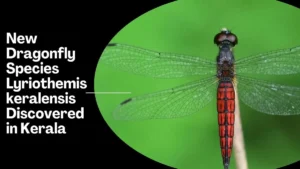In a historic move, Uganda, in collaboration with the World Health Organization (WHO) and global partners, has initiated the first-ever clinical trial for a vaccine targeting the Sudan species of the Ebola virus. The trial, launched just four days after the outbreak was confirmed on January 30, marks an unprecedented speed for a randomized vaccine trial in an emergency setting. If successful, the vaccine could play a crucial role in controlling future outbreaks and securing regulatory approval.
Check: Today Current Affairs
Key Highlights
Historic Trial
- First-ever clinical trial for a vaccine against the Sudan species of the Ebola virus.
- Initiated within four days of outbreak confirmation on January 30, demonstrating rapid response.
- No licensed vaccine currently exists for the Sudan species, unlike the Zaire ebolavirus.
Supported Partners
- Led by Makerere University and the Uganda Virus Research Institute (UVRI).
- Supported by WHO, CEPI, Canada’s IDRC, EU HERA, and Africa CDC.
- Vaccine donated by the non-profit IAVI.
Procedure and Expectation
- Ring vaccination strategy used, targeting contacts of confirmed cases.
- Strict regulatory and ethical compliance maintained.
- Results expected within months, potentially shaping future outbreak response strategies.
Ebola Virus Overview
- Discovered: 1976 in the Democratic Republic of the Congo.
- Family: Orthoebolaviruses (formerly ebolavirus).
- Origin of Name: Named after the Ebola River, near the first reported outbreak location in the DRC.
- Hosts: Primarily fruit bats (Pteropodidae family), also affects other primates and animals like gorillas, chimpanzees, monkeys, forest antelope, and porcupines.
Transmission
- Initial Host: Fruit bats of the Pteropodidae family.
- Zoonotic Transmission: Ebola is introduced into the human population via close contact with the bodily fluids of infected animals (e.g., bats, primates).
- Human-to-Human Transmission: Spreads through direct contact with blood, secretions, or body fluids of an infected person, either living or deceased.
Symptoms of Ebola
- Incubation Period: Symptoms may appear within 2 to 21 days after infection.
- Common Symptoms
- Fever
- Diarrhea
- Vomiting
- Bleeding (internal and external)
- Severe fatigue
- Organ failure
- Death (around 50% case fatality rate)
Treatment of Ebola
- No Known Cure: There is no fully proven cure for Ebola.
- Experimental Treatments: Two FDA (Food and Drug Administration)-approved monoclonal antibody treatments for the Ebola Zaire strain: Inmazeb and Ebanga and These treatments have shown promise but have not been fully tested for safety and efficacy.
- Supportive Care: Fluid and electrolyte balance maintenance and Blood transfusions and plasma for controlling bleeding.
- Recovery Factors: Depends on the amount of virus exposure, timely treatment, and the individual’s immune response and age.
| Summary/Static | Details |
| Why in the news? | Uganda Launches Groundbreaking Ebola Vaccine Trial |
| Vaccine Target | Sudan species of the Ebola virus |
| Trial Location | Uganda |
| Leading Institutions | Makerere University, Uganda Virus Research Institute (UVRI) |
| Supporting Organizations | WHO, CEPI, IDRC (Canada), EU HERA, Africa CDC |
| Vaccine Type | Recombinant vesicular stomatitis virus (rVSV) vaccine |
| Vaccine Donor | IAVI (non-profit organization) |
| Ethical Standards | Adheres to national and international regulations |
| Expected Timeline | Data collection within months |
| Global Impact | Potential for regulatory approval and improved outbreak control strategies |
| Discovery Year (Ebola) | 1976 |
| Virus Type | Orthoebolaviruses (formerly ebolavirus) |
| Location of Discovery | Democratic Republic of the Congo (DRC) |
| Virus Hosts | Fruit bats, primates (gorillas, monkeys, chimpanzees), forest animals (e.g., antelope) |
| Transmission | Zoonotic (from animals to humans via body fluids) and human-to-human (via contact with body fluids) |
| Symptoms | Fever, diarrhea, vomiting, bleeding, death (average case fatality rate: 50%) |
| Treatment | No known cure; FDA-approved monoclonal antibodies (Inmazeb, Ebanga) for Ebola Zaire strain; supportive care (fluids, blood/plasma) |
| Incubation Period | 2 to 21 days |
| Recovery Factors | Virus exposure, early treatment, immune response, age |
| Fatality Rate | Around 50% |
| Current Therapies | Maintenance of fluid balance, blood/plasma administration, experimental treatments |



 Vast Space Signs Deal with NASA for Priv...
Vast Space Signs Deal with NASA for Priv...
 17 Year Old Aditya Pandya Becomes India’...
17 Year Old Aditya Pandya Becomes India’...
 New Dragonfly Species Lyriothemis kerale...
New Dragonfly Species Lyriothemis kerale...








